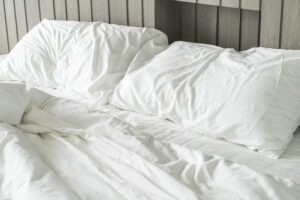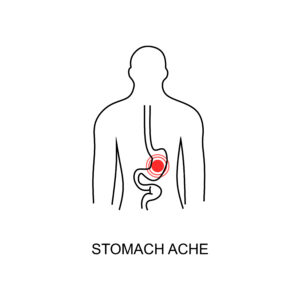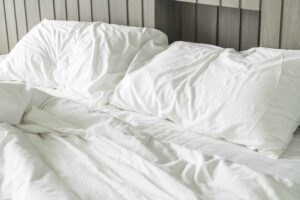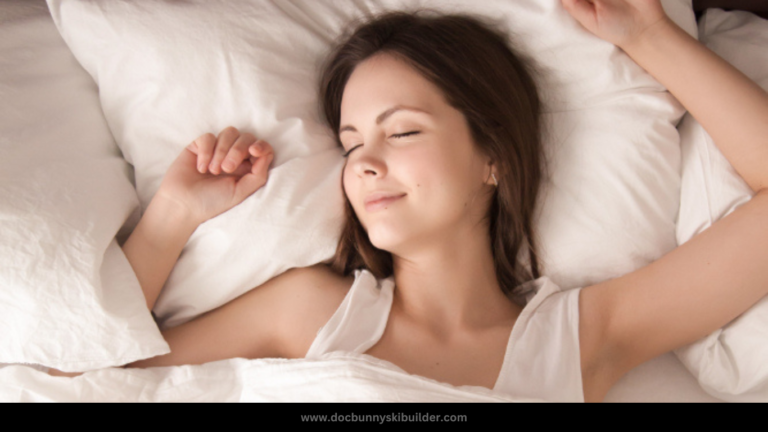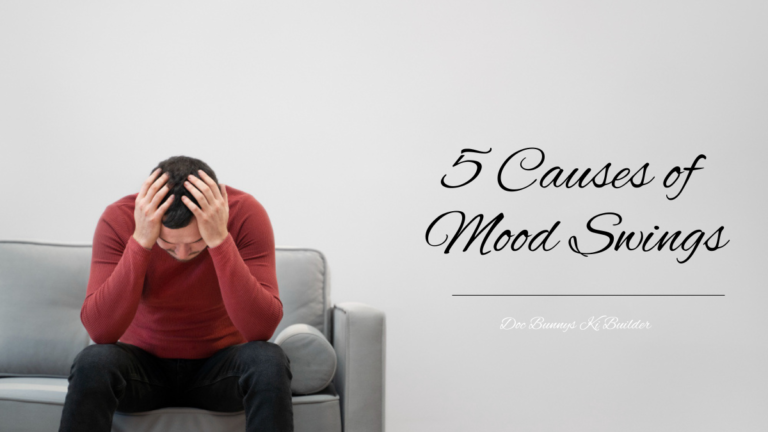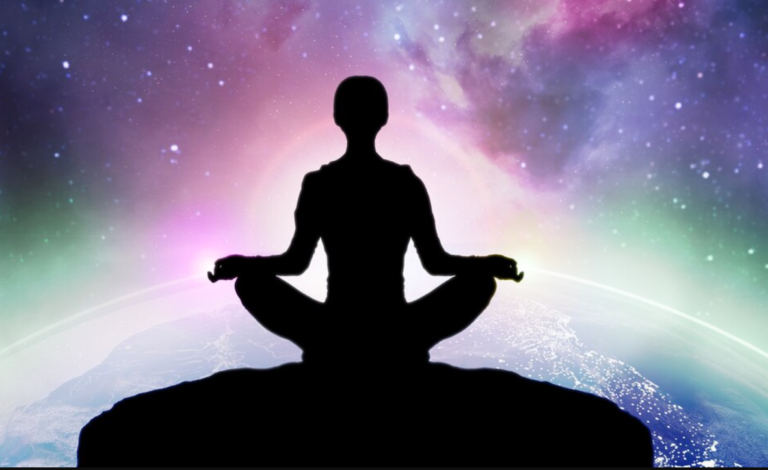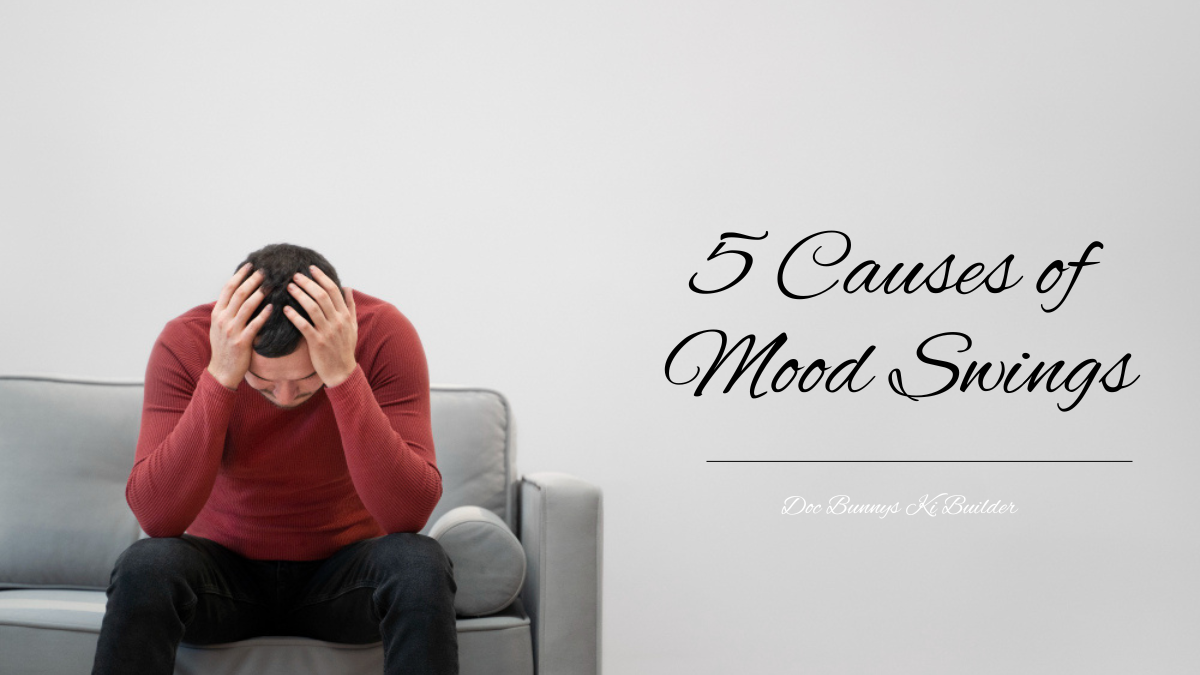Introduction: The Stages of Sleep
What is sleep hygiene and why is it such an important part of good health? In a nutshell, sleep hygiene is “a variety of different practices and habits that are necessary to have good nighttime sleep quality and full daytime alertness.” Basically, it is all the things you can, and should, do to get the most rest from your time sleeping. This not only includes the number of hours you get, but also the quality of those hours.
In This Article
ToggleThe fact is sleep is a necessity of life. It allows our brain and body to recover after being awake all day. Specifically, it restores our body’s ability to function, to repair body tissues, create hormones – some of which are necessary for sleep, consolidate memories and learning, and regulate mood.
Whether you are a person that occasionally experiences a day of sleepiness, or you feel sleep-deprived most days, it is important to understand the different stages of sleep before we get into how to get more of it and of a better quality.
It is important to understand that no one stage of sleep is more important than another. Studies have shown that each stage plays a distinctive role in your health; this is important to note.
In addition, your sleep follows a predictable pattern every night. In other words, actual stages exist where your brain waves change, the ability to be awakened easily changes, and there are specific times when you experience vivid dreaming.
Sleep can be divided into two major categories – REM sleep and non-REM sleep. Of course, REM is short for “Rapid Eye Movement” and is the deep restorative sleep that we need.
Non-REM Sleep
This is always the starting point when you fall asleep. According to the National Sleep Foundation, there are three phases of non-REM sleep, each lasting from 5 to 15 minutes, and making up about 75% of your sleep at night. You must pass through all three phases of non-REM sleep before you reach the REM phase about 90 minutes after you first fall asleep. If you have insomnia and have trouble falling or staying asleep, these phases are either delayed, interrupted or repeated.
This cycle of non-REM/REM sleep repeats itself throughout the night, with the first full cycle lasting between 70 and 100 minutes. The second and later sleep cycles last between 90 and 120 minutes.
Three phases of non-REM sleep
Stage 1: Your eyes are closed; you feel drowsy and your brain activity starts to slow down. This is the transition period from wakefulness to sleep. If awakened while in this stage, you will not feel too drowsy or disoriented. As a matter of fact, you might not even realize you had been asleep. This stage usually lasts no more than seven minutes.
Stage 2: In this stage, your brain waves become even slower, but they still may have an occasional burst of activity. Your body temperature goes down. If you are awakened from this stage, you will know that you have been sleeping.
Stages 3 and 4: Recordings of your brain waves at these stages demonstrate slow waves called, “delta waves.” Your body temperature decreases even more, your breathing is slower, and your blood pressure decreases. This is what is typically known as the “deep sleep” stage.
It is harder to wake someone up during this stage of sleep, but if you are awakened, you will feel groggy, you may feel disoriented, and it will take some time to feel alert.
This restorative stage of sleep is important for your body to recover from the fatigue it undergoes from the previous hours you were awake, and to build up energy for the next day. Your body also rebuilds bone and muscle, repairs tissues, and increases the functioning of your immune system, during this time of sleep. Growth hormone is also released, which is important for muscle development and growth.
Most of Stages 3 and 4 slow-wave sleep occurs in the early hours of the night.
REM Sleep
In this stage of sleep, your heart rate and breathing increase. Your breathing sounds shallow and irregular. Your eyes move rapidly, hence the term, rapid eye movement. Your muscle tone decreases so significantly that it resembles paralysis.
This stage of sleep typically occurs 90 minutes after you first fall asleep. The first REM sleep period lasts no more than 10 minutes and continues to increase with each cycle of the night, resulting in being around an hour long for the final REM episode of the night. As a result, most of your REM sleep occurs in the early morning hours.
The sleep stages are sequential meaning each must succeed the other. And if one stage is interrupted, the body must reset and start going through the stages again. Knowing this, it is easy to see if you have trouble falling asleep or awakened during the night, you will not get as much restorative REM sleep as you should; in certain cases of multiple interruptions during the night, you may never get to the REM phase at all!
Why Sleep is So Important in All Areas of Life
It is the time at night while we are sleeping that our brain does many of the maintenance tasks it must do to keep us healthy. During our waking hours, it doesn’t have time to carry out these tasks, so it must do it at night.
Mental Health
For instance, in a 2013 study, researchers found that during non-REM sleep, cerebrospinal fluid washes over the brain in waves and in the process, clears out toxins like beta amyloid left from various metabolic processes. This toxin if not cleared out continues to gather and can form amyloid plaque which is a suspected cause of a dementia called Alzheimer’s. If you don’t get enough non-REM sleep, the brain does not have enough time to clear out this and other toxins which over time can be harmful to brain health.
Other studies have shown that when people are sleep deprived, they act similar to people under the influence of drugs or alcohol. Without adequate sleep, they are more likely to be involved in a car accident or hurt on the job from a lack of attentiveness. Performance at the office suffers because of a lack of concentration.
Physical Health
And the right quantity and quality of sleep is important for good physical health too. Poor sleep has been linked to a higher Body Mass Index and weight gain – to the point of obesity. In a study of 60,000 nurses over a 16-year period, those that slept five or fewer hours per night were 15% more obese compared to those that slept seven hours or more. In another short study – just five nights – 16 adults in the study that were only allowed to sleep for five hours each night each gained on average 1.8 pounds in just five days of the study!
In relation to weight gain caused by a lack of sleep, the reasons believed why it happens are:
⦁ An increase in appetite – the body makes more of the hunger hormone ghrelin and less of the hormone leptin that suppresses hunger.
⦁ Food cravings – Not only are cravings for more unhealthy food increased, but our ability to resist is lower in people who are operating on a lack of sleep.
⦁ Increase in calorie intake – Sleep deprivation dulls the frontal lobe of the brain making it harder for us to make good healthy food choices, therefore we eat more food higher in carbohydrates.
⦁ Decrease in resting metabolism – A lack of sleep decreases the number of calories burned while resting. And research has shown that a lack of sleep can result in a loss of muscle mass meaning you are not burning as many calories while awake as you would have if you had not lost muscle mass.
⦁ Decrease in physical activity – When tired from a lack of sleep, you just don’t feel like exercising, so your calorie burn is down, but remember your appetite is increased. The result from this one/two punch? Weight gain.
⦁ Increase in insulin resistance – Poor sleep causes cells to become more insulin resistance meaning more sugar is left in the bloodstream. This signals the body to release more insulin to move the sugar to the cells. Unfortunately, an increase in insulin stores the extra calories form the sugar as fat. And it is well known that too much insulin also increases your appetite meaning you are taking in more calories.
So, between gaining weight, exercising less, being less attentive at work and a decrease in focus, it is easy to see why getting an adequate amount of sleep is necessary for good mental and physical health.
Basic Sleep Rules/Habits to Live By
If you are not currently getting enough hours of sleep per night, there are some things you can do to improve it.
Set up a sleep schedule. Go to bed and get up around the same times each day – even on your days off. In doing so, your body will biorhythmically get used to winding down when it is time to go to sleep and start waking up when it is time to get up.
Create a bedtime routine. In addition to a consistent sleep schedule, doing the same things at night before you go to bed are important as it helps your body sense it is approaching the time to go to sleep. Some people like to take a hot shower or bath or read a book.
If you like a bath, sprinkle a few drops of your favorite essential oil in the bath water. Lavender is a favorite of many people. Light a scented candle and listen to some soft music while sipping on a glass of wine to help unwind you. But only one 4- or 5-ounce glass as too much alcohol can have the opposite effect and disturb your sleep. If reading, make sure it is a printed book and not one on a blue-screen device.
Troubleshooting Sleep Issues
An estimated 20 million adults in North America alone have insomnia and trouble falling asleep at night. Another 40 million suffer from diagnosed sleep disorders. Aside from the disorders which should be addressed by a healthcare professional, there are some things you can do to figure out why you are having trouble sleeping.
There are two different types of insomnia – short- and long-term. Short-term insomnia can be caused by a change in seasons or jetlag. Once your body adjusts, it usually corrects itself in a few days. The issues we are interested in that need to be resolved are long-term insomnia like:
⦁ Trouble falling asleep or staying asleep – these issues can be caused by a noise that startles you awake, chronic stress that keeps you awake, effects from taking certain medications, some health conditions or just bad habits you have before going to bed.
⦁ Waking up early – Your body will start to wake up if it senses the sun is coming up. That can be corrected by making your bedroom darker. Some people use blackout shades or curtains that allow them to wake up when their body wants to, no0t when it is influenced by outside conditions.
⦁ Sleeping too much or not feeling rested – If sleeping too much or not feeling rested after a night’s sleep are issues, then it could be that you are not getting adequate rest during your sleep time. You might be getting the correct number of hours, but they are not as restful as they should be. Many times, this can be corrected by changing your sleeping environment. Your bedroom could be too warm for example. We talk about how to make corrections to your sleeping environment later in this book.
The Link Between Gut Health & Sleep Health
Various studies have shown us that there is a relationship between our digestive system and sleep. But is like the chicken and egg question – does poor sleep effect our gut health or does poor gut health affect our sleep? As it turns out it can be both.
In a 2016 study, researchers found that as little as two nights in a row of not getting enough sleep changed the microbiome structure in the participant’s digestive system, confirming that poor sleep affects digestion. And once the microbiome is altered, it was found to affect the quantity and quality of sleep on the nights following.
In another study out of the University of Washington, they studied how shift work affected gut health. They found that even as little as three days of making the body operate outside of its normal rhythms caused a change that affected the gut and pancreas leading to unwanted metabolic changes.
So, if poor gut health affects sleep, does good gut help improve sleep? As it turns out it does. In 2017 a study, it found that prebiotics – fiber or foods high in fiber – improved gut health by feeding the live bacteria found in the digestive tract. This further enabled participants to get not only more, but a higher quality of sleep.
In the end, what you eat and when you eat it affects how well you sleep. We discuss diet further in a later chapter on Health Habits.
Why Your Lifestyle Is Damaging Your Sleep
Blue-screen devices – Many of the things we do as a matter of our lifestyle routine can in fact affect our sleep. One of the things many of us like to do at night before going to sleep is to read. However, if you are reading on a blue-screen device – smartphone, tablet, laptop, e-reader – then that could be what is keeping you from falling asleep. These electronic devices emit a blue color wavelength which the body interprets as the sun coming up so instead of winding down, it is waking up your body for the coming day. If reading relaxes you, then do it by reading a printed book and not on a blue-screen device.
Caffeine – Another lifestyle item that keeps people up at night is consuming caffeine too close to bedtime. As the ingestion of this stimulant affects people differently, you will have to experiment to see what is the latest you can ingest caffeine and not have it affect your sleep.
Alcohol – Many people may have a glass or two of some type of alcohol – beer, wine or mixed drink – thinking that it helps them unwind. And initially, it does help them fall asleep. But in some people, it is also the thing that wakes them up later in the night and makes it hard for them to get back to sleep.
Bedroom environment – Sometimes the room in which you sleep can be the cause of your sleep issues. One thing common to a lot of sleepless nights is having your bedroom too hot. Ideally it should be around 60 to 72 degrees Fahrenheit.
Light coming in a window can throw off your circadian rhythms in that it makes your body think it is time to get up. If you have light issues, get some blackout curtains or shades to block out the unwanted light.
Speaking of light, if you like to read a book before going to sleep invest in a reading light. That way you can turn off the rest of the bedroom lights and get your body into a wind-down mode.
For some people, their sleeping woes are due to their physical sleeping items, such as mattress or bedding. A mattress over eight years old is due to be replaced with one that is more conducive to sleeping.
Next come your pillows and sheets. If you wake up in the morning with neck pain, your pillow could be the cause. You might need one softer or firmer. It might take some experimentation to find one right for you, but it is worth it to not have neck pain. And it could be the neck pain that is waking you up at night. Finally are the sheets. Invest a little more in sheets and get something more luxurious that your generic standard cotton sheets.
One thing overlooked by many is to match your sheets to the bedroom environment. When it is warmer out, satin sheets may be cooler for you. On the other hand, if cooler in your bedroom, flannel sheets will keep you warner. Again, experiment until you find what is right for you.
Bed No-Nos – The bed should be used for two things and two things only – sleep and sex. That means no working, eating, watching TV or talking on the phone while in bed. All of these things do not promote winding down and preparing your body and mind for sleeping.
Health Habits for a Healthy Sleep
As mentioned earlier in this book, what you eat and when can affect how well you sleep. To help get your body into a consistent biorhythm so that it is established as a routine, try to eat your meals at the same time each day, but avoid eating two hours before going to bed. Making your digestive system work overtime when you are trying to sleep can end up keeping you awake. One trick many people use is to have their big meal of the day at lunchtime and then eat light for dinner.
Some people have a bad habit of getting up during the middle of the night to have something to eat. This can have the same effect as eating too close to your bedtime.
The same with drinking. Having too much liquid too close to bedtime means more than likely that you will have to get up during the middle of the night at least once to go to the bathroom. You might have a hard time going back to sleep after having been woken up.
And we have already mentioned how drinking too much alcohol too close to bedtime can interrupt your sleep during the night. Not only from the effects of alcohol, but because alcohol is a diuretic, it sucks water out of your body so that you will have to get up during the night to go to the bathroom.
Exercise
Scientific studies support what most of us already know. Generally, we sleep better if we have done some sort of physical activity that day. Gardening, running, doing an exercise routine all make us more tired and in the end result in a better NREM sleep – the deep dreamless type of REM sleep that is restorative to the mind and body.
The caution however is to not do that exercising too close to your bedtime. When exercising, the body temperature is raised, and it can take as long as six hours for it to return to normal. As we have found out in this book, too hot a temperature, whether environment or body, can inhibit sleep. The general consensus is to exercise at least three hours before going to bed to get a good night’s sleep.
As it turns out – also supported with studies – the amount of sleep you get affects how you exercise the next day. Scientists call it a bi-directional relationship. Of course, it makes sense that if you did not get a good night’s sleep, you will be tired the next day and not be at your best as far as exercising.
Diet
When it comes to diet, we know that you should not eat too close to bedtime and you should shy away from any diets that have you eating 800 or fewer calories per day. However, we also know through studies that eating a diet low in carbohydrates but high in fat (Keto) tends to increase our NREM sleep while a diet high in carbohydrates and low in fat decreases this type of deep restorative sleep.
Because psychologically the effects of fatigue, hunger and a lack of sleep are similar, you may think you are hungry when in fact you are tired and should sleep. Learn the difference so that you don’t eat only to find out later you should have gone to bed, but because you just ate, you can’t get to sleep which further exacerbates the problem.
Vitamins and Supplements
There are several vitamins that if deficient can cause sleep problems:
⦁ Iron
⦁ Magnesium
⦁ Vitamin D
⦁ Melatonin
⦁ B vitamin complex
⦁ Chamomile
⦁ Calcium
⦁ Potassium
⦁ Vitamin E
⦁ Valerian Root
Iron
Iron in our blood is what helps carry oxygen to our cells and tissues. A lack of having enough is one of the primary causes of a sleep disorder known as Restless Leg Syndrome or RLS. With RLS, sufferers involuntarily move their legs making it hard to get to sleep or if they do are woken up during the night with RLS. Sometimes the cure for RLS is increasing the amount of iron in the blood either through foods containing high amounts of iron or with supplements.
Magnesium
This mineral does a couple of things in regard to sleep. One, it helps the body relax by releasing muscle tension and helps prepare the body for sleep. Two, it promotes the production of melatonin which is a promoter of sleep.
Vitamin D
A deficiency in the “sunshine” vitamin is linked to a disrupted sleep cycle. You can get vitamin D through a 15 to 20-minutes exposure to sunlight each day or through various foods like, dairy, fish and eggs.
Melatonin
A naturally occurring hormone in the body, it is essential to keeping a good daily sleep-wake cycle by regulating body biorhythms. It lets your body know that when it begins to get dark, it is time to go to sleep. One good natural way to generate melatonin is to get more exposure to sunlight. So while you are getting your vitamin D, you are also making more melatonin. For those home-bound and can’t get outdoors much, melatonin pills also work well.
B Vitamin Complex
Thiamine, riboflavin, vitamin B6 and B12 and folic acid are just a few of the B vitamins essential not only for good health, because they promote healthy brain function, increase energy levels and promote the growth of red blood cells. The more red blood cells, the more iron can get to the cells and tissues. Also, a deficiency of B5 can cause you to wake up during the night while B12, folic acid and B9 help fight insomnia.
Chamomile
While not a vitamin or supplement per se, it is an herb, but due to its power to promote relaxation, it is worth mentioning in this section. Enjoyed either as a hot tea or as a diffused essential oil, it should be added to your daily bedtime routine if you have trouble falling asleep.
Calcium
While calcium is not normally thought of as something associated with improving sleep, it is required to help the brain use the hormone tryptophan make melatonin – a known promoter of sleep.
Potassium
While studies are ongoing as far as how potassium works, studies are suggesting that this mineral helps promote deep restorative sleep once you are asleep.
Vitamin E
If RLS is an issue for you or night seats of hot flashes, an increase in this vitamin can help.
Valerian Root
This is another herb worth mentioning when talking about sleep. Much like chamomile, it helps the body relax and is an ingredient in many of the medicines prescribed for sleep disorders. Generally taken as a tablet, it helps ease your mind and helps your body rest more easily.
The vitamins, supplements and herbs mentioned in this section can help you sleep better, but the first choice should be eating foods that are rich in sleep-friendly nutrients and making sleep-promoting lifestyle choices, like cutting down caffeine and alcohol intake several hours before going to bed, avoiding blue-screen technology devices before going to bed and creating a sleep-inducing bedroom environment.
Although diet and exercise are two critical components of a healthy lifestyle, it’s also important to keep in mind of the bi-directional relationship with sleep, what and how much we eat, when and how much we exercise, and how we function on a daily basis. Getting the proper amount and quality of sleep each night is necessary to face the world the next day and do your best. Just as sleep will help you on the road to good fitness, good eating and good health, not getting enough sleep will have the reverse effect.



